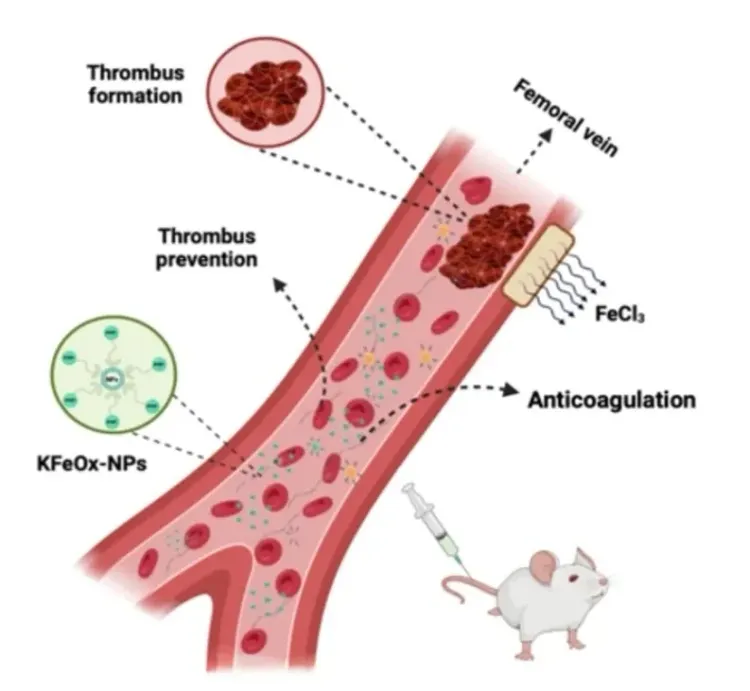Can IIT-BHU Bioengineers Revolutionize Blood Clotting Prevention?

Synopsis
Key Takeaways
- KFeOx-NPs can prevent blood clotting.
- They allow blood to remain in a liquid state for 48 hours.
- These nanoparticles enhance the performance of medical devices.
- They do not accumulate in fat tissues.
- The research could revolutionize treatments for thrombotic disorders.
New Delhi, June 27 (NationPress) Biomedical engineers at the Indian Institute of Technology-BHU in Uttar Pradesh have successfully created affordable and intricate nanoparticles designed to inhibit clot formation and serve as an antidote for thrombotic conditions.
The research team concentrated on the anticoagulant properties of potassium ferric oxalate nanoparticles (KFeOx-NPs) during their development. Potassium is recognized for its vital role in maintaining the health of blood vessels and the heart.
These nanoparticles demonstrated the ability to keep human blood in a liquid state for up to 48 hours. According to Sudip Mukherjee, lead author from the School of Biomedical Engineering at IIT (BHU), these findings could be significant for the safe collection and preservation of blood for various medical applications.
Using mouse models, the researchers assessed toxicity and biodistribution profiles, confirming the safety and effectiveness of these nanoparticles.
The team observed that the nanoparticles successfully inhibited clot formation in the blood vessels of live mice and effectively halted thrombosis.
The researchers elaborated that the KFeOx-NPs function by binding to calcium ions in the bloodstream, which prevents the synthesis of fibrin, the primary protein responsible for blood clot formation.
“When KFeOx-NPs were injected intravenously, they significantly increased clotting time and aided in thrombosis prevention in mouse models, as verified by ultrasound and power Doppler imaging,” they stated.
“Additionally, coating catheters with KFeOx-NPs reduced protein attachment and prevented clot formation, thereby improving blood flow,” they added.
The researchers believe that KFeOx-NPs could also find applications in biological settings, enhancing long-term prevention of blood clots and improving medical device efficiency.
Importantly, these nanoparticles dissolve easily in water and do not get stored in fat tissues.
In tests with nanoparticle-coated catheters, there was enhanced blood flow, with fewer proteins adhering to the surfaces.








